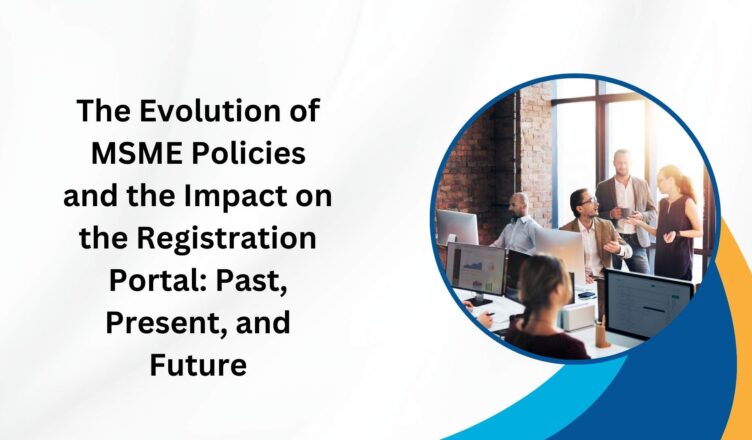Micro, Small, and Medium Enterprises (MSMEs) form the backbone of many economies worldwide, contributing significantly to employment generation, GDP growth, and industrial output. Over the years, governments have recognized the importance of supporting MSMEs through tailored policies aimed at fostering their growth and sustainability. Central to these efforts is the evolution of MSME policies and their impact on registration portals. The MSME Registration Portal is an online platform provided by governments or relevant authorities to facilitate the registration process for Micro, Small, and Medium Enterprises (MSMEs). It serves as a centralized digital gateway where entrepreneurs and business owners can register their enterprises under the MSME category.
Past Policies and Their Impact
Historically, MSME policies focused on providing financial incentives, subsidies, and regulatory relaxations to encourage entrepreneurship and small-scale industrial activity. The registration portals during this period primarily served as administrative tools, facilitating compliance with statutory requirements but offering limited strategic support.
During this phase, challenges such as bureaucratic red tape, inadequate infrastructure, and limited access to credit often hampered the growth prospects of MSMEs despite policy support.
Present Policies and Transformations in Registration Portals
In recent years, there has been a paradigm shift in MSME policy frameworks globally. Governments have increasingly emphasized digitization, ease of doing business, and inclusivity in policy formulation. This shift has profoundly influenced MSME registration portals, which have evolved into comprehensive platforms offering not only registration services but also business development resources, market linkages, and financial assistance.
The present-day registration portals are designed to be user-friendly, accessible 24/7, and integrated with other government services, streamlining the entire process from registration to operationalization. This transformation aims to reduce administrative burdens, promote transparency, and enhance the overall competitiveness of MSMEs in the global market.
Future Directions and Policy Innovations
Looking ahead, the future of MSME policies and registration portals is poised for further innovation and adaptation to emerging economic realities. Key trends shaping this evolution include:
Enhanced Digital Integration:
Continued integration of cutting-edge technologies to further enhance the efficiency, security, and accessibility of registration portals. This includes exploring the use of AI for automated document verification, blockchain for secure transactions, and big data analytics for predictive modeling and trend analysis.
Inclusive Growth Initiatives:
Targeted policies to support underrepresented groups such as women entrepreneurs, minority-owned businesses, and startups in rural and remote areas. This includes dedicated funding programs, capacity-building initiatives, and mentorship opportunities to ensure equitable access to resources and opportunities.
Sustainability and Resilience:
Increasing emphasis on promoting sustainable business practices among MSMEs, including energy efficiency, waste reduction, and adoption of green technologies. Governments are likely to introduce incentives and certification programs to encourage environmentally responsible practices.
Globalization and Market Access:
Strengthening international trade agreements, export promotion strategies, and market access initiatives to facilitate MSME participation in global supply chains. This includes supporting MSMEs in navigating regulatory complexities and accessing new markets through digital platforms and e-commerce solutions.
Note: You can also Print Udyam Certificate from our website
Conclusion
The evolution of MSME policies and registration portals reflects a dynamic shift towards enabling, empowering, and sustaining small businesses in a rapidly changing global economy. From administrative tools to strategic enablers of growth, registration portals have become pivotal in fostering an inclusive and competitive business environment for MSMEs.
As governments continue to refine their policies and leverage technological advancements, the future promises greater opportunities for MSMEs to thrive, innovate, and contribute significantly to economic development. By fostering a conducive regulatory environment and enhancing digital infrastructure, policymakers can ensure that MSMEs not only survive but thrive in the face of evolving challenges and opportunities.

